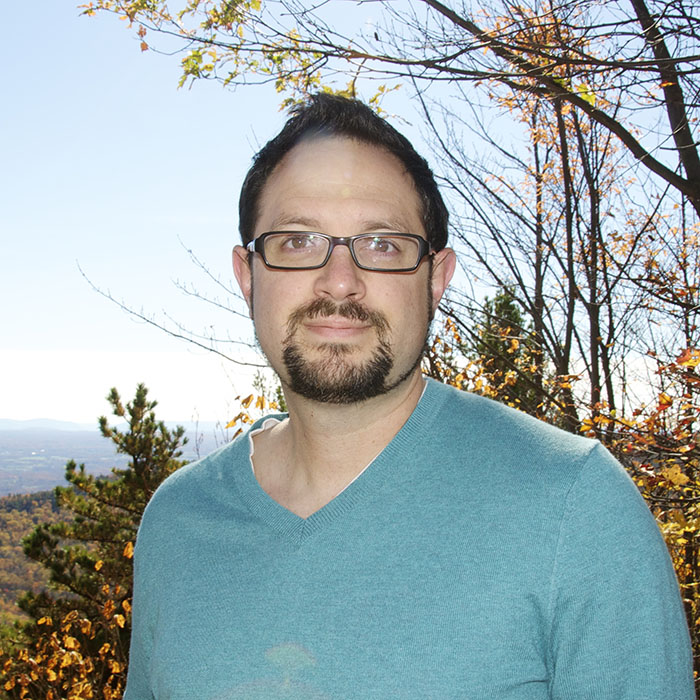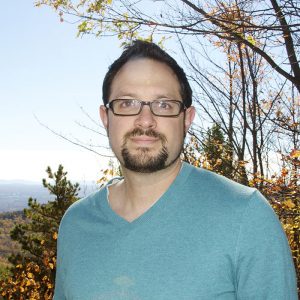New Faculty Profiles allow GSA members who are establishing their first labs to introduce themselves to our wider community. If you’d like to submit your profile, please complete this form.
David Matus
Assistant Professor, Stony Brook University, Dept. of Biochemistry and Cell Biology (since 2014)
Stony Brook University
Lab website
Briefly describe the ongoing and expected research projects as your lab gets up and running.
My lab is interested in studying morphogenesis at the intersection of cell, developmental, and evolutionary biology. We use C. elegans and other nematodes to understand how cells acquire an invasive phenotype, or the ability to breach the basement membrane. During nematode post-embryonic development, the anchor cell, a specialized somatic gonad cell, initiates the uterine-vulval connection by invading through the basement membrane that separates the uterine and vulval cells, so that worms can passage eggs to the external environment. We are especially interested in understanding how cell cycle regulation impacts invasive behavior and basement membrane remodeling during development and how these programs might change across evolution. We have some really fun collaborations going on right now as well, both locally at Stony Brook and across the globe. Specifically, we are collaborating with Ben Martin’s lab, looking at cell cycle regulation of cell behaviors in zebrafish posterior growth and during cancer metastasis, funded by the Damon Runyon Cancer Research Foundation. Also, we just started a project studying the only vertebrate model of algal endosymbiosis, where a photosynthetic algae, Oophila amblystomatis, “invades” into the embryos of the spotted salamander, Ambystoma maculatum. We are hoping to use light sheet microscopy to gain new insights into this endosymbiosis in collaborating with Ryan Kerney (Gettsyburg College), Solange Duhamel (Columbia University) and John Burns (American Museum of Natural History), funded by the Gordon and Betty Moore Foundation.
How has being a member of GSA helped you advance in your career? Why do you think societies like GSA are important?
As I was a newcomer to working with a genetic model organism as a post-doc, the international C. elegans GSA meeting was invaluable in my introduction to the C. elegans community, which has been fantastic! I was also able to attend the Model Organism to Human Biology GSA meeting as a postdoc, which was a wonderful experience to interact with a whole new set of biologists, and has had a profound influence on helping me frame my work in a human context. Societies like GSA are fundamental to professional and scientific development at all career stages by providing opportunities for networking, new collaboration, and maintaining friendships with colleagues globally.
If your position involves teaching, which subjects or courses are you expecting to teach?
I teach an upper level developmental genetics laboratory course. It’s a relatively large class (~75 students) that we recently changed into a CURE (Classroom Undergraduate Research Experience), allowing students to get hands on experience designing experiments using either C. elegans, Drosophila, or Nematostella (the starlet sea anemone). I also help teach a graduate student developmental biology class where the students read papers from invited seminar speakers and interact with the speakers during their visits, based on a class that my postdoc mentor led at Duke.
Are you looking to recruit students and/or postdocs? If so, please describe and be sure to also post the opportunity to GeneticsCareers.org.
Yes! We are particularly interested in looking for students or post-docs who might be interested in applying CRISPR/Cas9-based genome editing technology to the study of anchor cell invasion in other nematodes related to C. elegans.
Previous training experiences:
– Duke University, David Sherwood’s lab, Dept. of Biology – postdoc (2007-2013)
– University of Hawaii, Kewalo Marine Laboratory, Mark Q. Martindale’s lab, Zoology Department – M.S. and PhD (1999-2006)
– Wesleyan University, B.A. in Biology, 1998
What do you like to do when you’re not at work?
I’m a sax player, and am fortunate enough to have been able to keep my chops up by playing with local or university big bands throughout my career. I’m currently playing with both the Stony Brook University big band “Blowage” and also have a monthly gig at Stony Brook’s only jazz club, The Jazz Loft. Playing music keeps me sane! I also love to cook, which works out well, so I can practice my craft on my wife and children, who will definitely grow up to NOT be picky eaters (or at least appreciate good food). We also like to go running and hiking, and for the last two years I’ve been coaching my daughter’s basketball team, which is awesome!
































